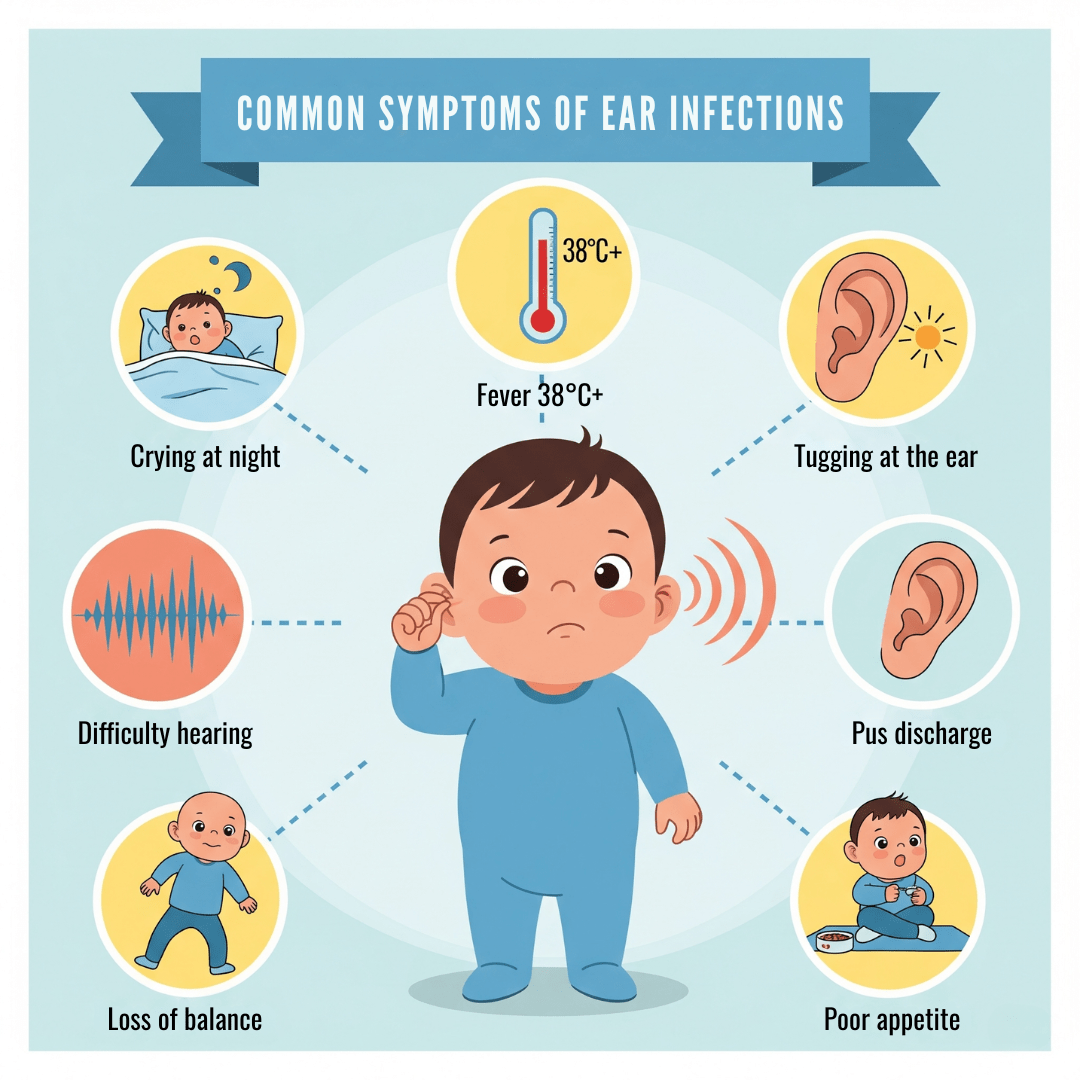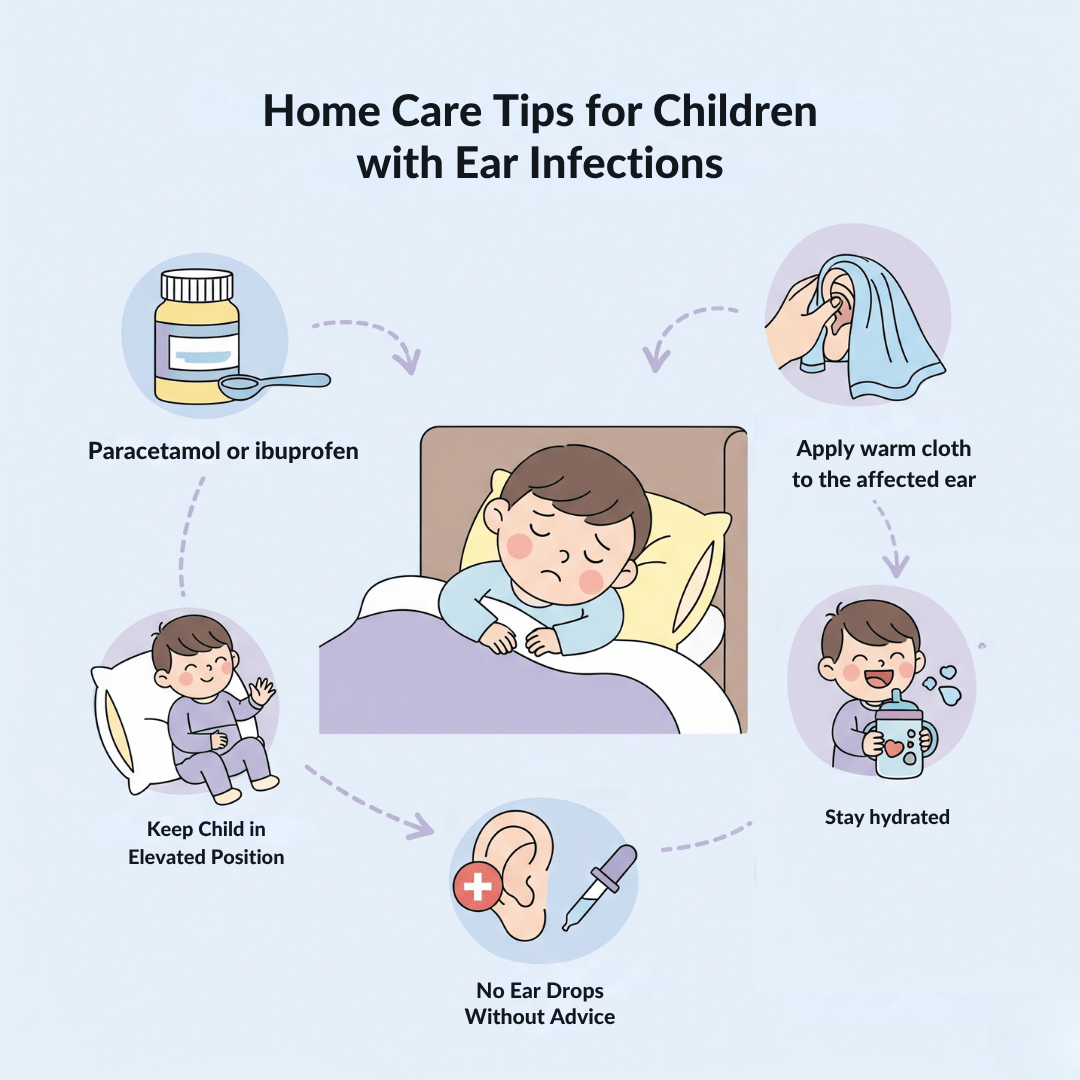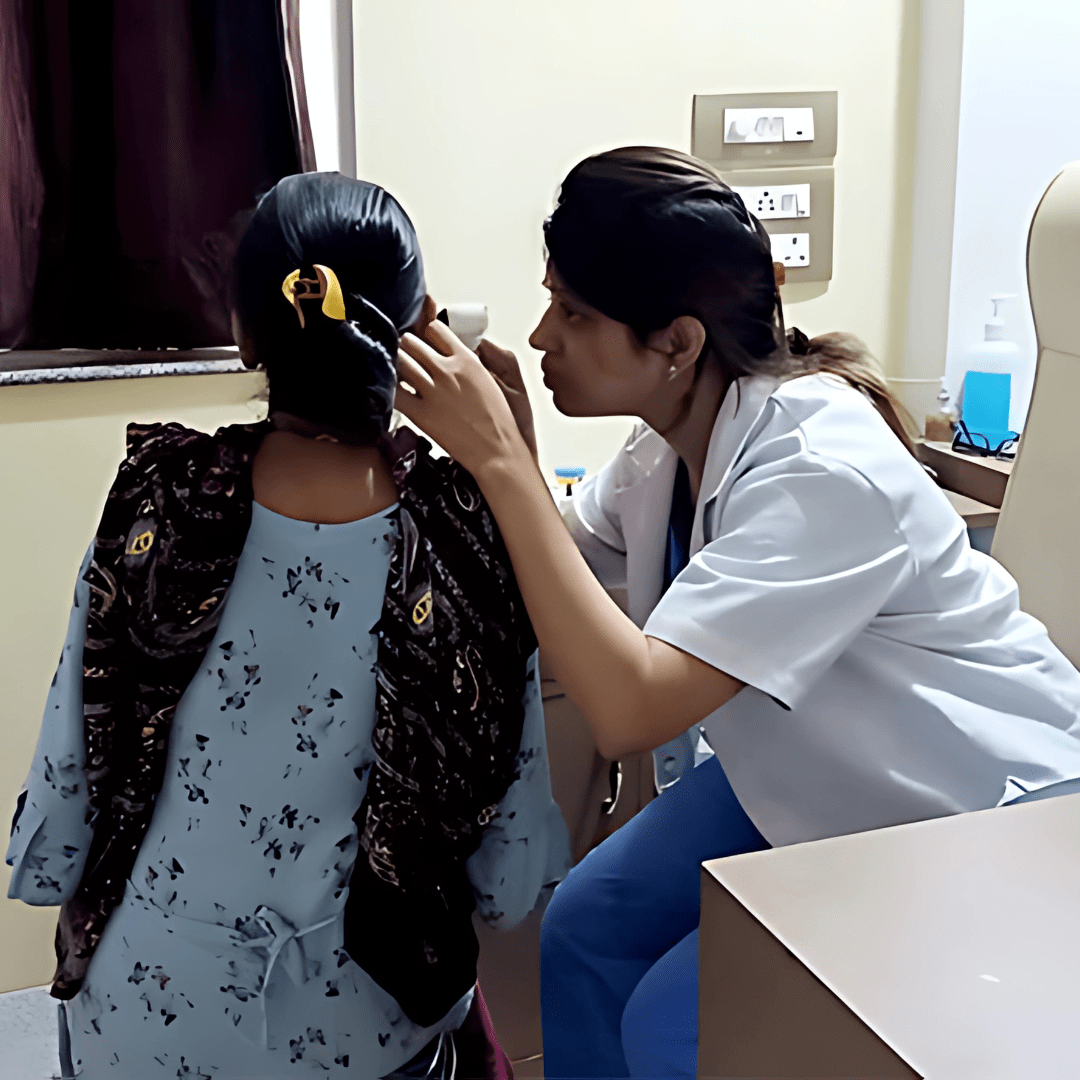Ear infections are one of the most common reasons parents take their children to the doctor, especially in the early years. While they can be distressing for both the child and parent, understanding why ear infections are more prevalent in children and knowing when to seek medical advice can help ease concerns and ensure timely care.
Let’s explore why young ears are more vulnerable, the typical signs of infection, and how to manage them at home and with professional support.
Why Are Children More Prone to Ear Infections?
Ear infections, particularly middle ear infections (known as otitis media), occur when fluid builds up behind the eardrum and becomes infected by bacteria or viruses. This is more common in children for a few key reasons:
1. Immature Immune System
Young children’s immune systems are still developing, making it harder for them to fight off common infections like colds and flu. These viral infections often pave the way for ear problems.
2. Shorter, Flatter Eustachian Tubes
The Eustachian tubes connect the middle ear to the back of the throat and help drain fluid. In children, these tubes are shorter and more horizontal, which means fluid drains less efficiently and is more likely to become trapped.
3. Enlarged Adenoids
Adenoids are tissues near the Eustachian tubes that can swell during infection. In children, enlarged adenoids can block drainage and contribute to repeated ear infections.
Common Symptoms of Ear Infections in Children
Ear infections can develop rapidly, especially following a cold or upper respiratory infection. Signs may vary by age but typically include:
- Ear pain or tugging at the ear
- Crying or irritability, especially at night
- Fever (38°C or higher)
- Difficulty hearing or responding to sounds
- Fluid or pus-like discharge from the ear
- Loss of balance or clumsiness
- Poor appetite or trouble sleeping
Infants and toddlers may not be able to express their discomfort clearly, so watch for behavioural changes or physical cues.
Home Care Tips: What You Can Do
Mild ear infections often resolve on their own within a few days, particularly if they are viral. Here are some ways to comfort your child at home:
- Pain relief: Paracetamol or ibuprofen (age-appropriate dose) can help reduce fever and ease discomfort.
- Warm compress: Applying a warm cloth to the affected ear can provide temporary relief.
- Keep them upright: Keeping your child’s head elevated while resting may help drainage.
- Plenty of fluids: Staying hydrated can help thin mucus and promote healing.
Avoid putting oil or other liquids into the ear unless advised by a doctor.
When Should You See a Paediatric ENT Specialist?
While many ear infections improve without antibiotics, medical evaluation is essential in the following situations:
- Symptoms last more than 2–3 days
- Fever persists or gets higher
- There is discharge or pus from the ear
- Your child experiences recurrent infections (three or more in six months)
- There are hearing difficulties or speech delays
A paediatric ENT specialist may recommend further tests, hearing assessments, or, in some cases, the insertion of grommets (ear tubes) to assist with drainage in chronic cases.
Can Ear Infections Be Prevented?
While not all ear infections can be avoided, a few preventive steps can reduce your child’s risk:
- Breastfeed when possible: Breast milk provides antibodies that support the immune system.
- Keep your child’s head elevated while feeding (especially with bottles).
- Avoid exposure to smoke, which irritates the Eustachian tubes.
- Practise good hand hygiene to limit the spread of colds and viruses.
- Keep up with vaccinations, including the flu jab and pneumococcal vaccine.
Ear infections may be common in childhood, but that doesn’t make them any less worrying for parents. By recognising early symptoms, offering comfort at home, and seeking help when needed, you can manage your child’s ear health with confidence.
If your child is experiencing frequent ear infections or symptoms that persist beyond a few days, don’t hesitate to consult a paediatric ENT specialist. Early intervention can prevent long-term complications and ensure your child hears, speaks, and grows without disruption.



